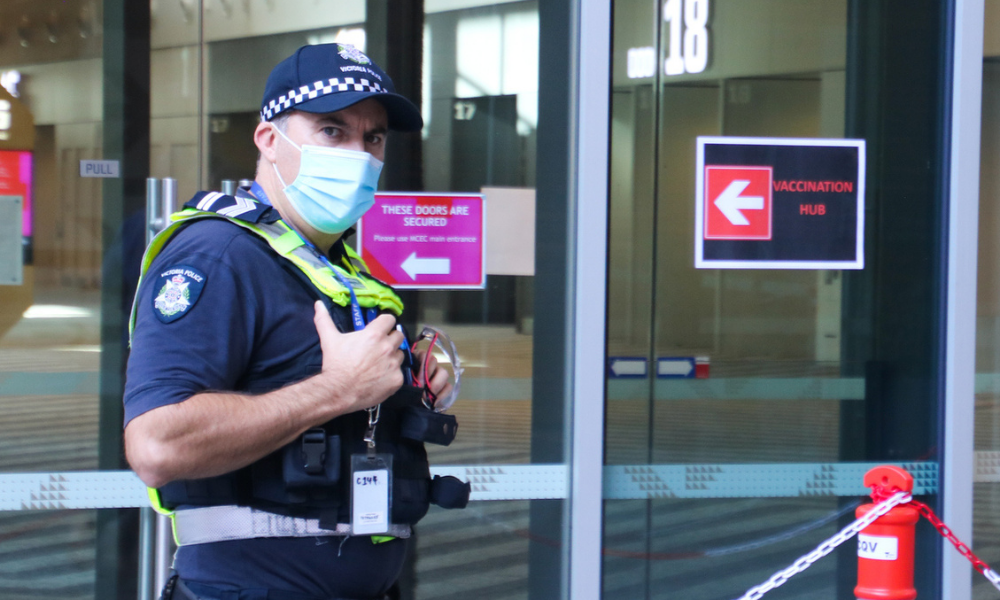
Over 35,000 public health order breaches were recorded by NSW Police in the last two months

The heightened monitoring of COVID-19-related violations could result in backlogs for NSW courts, the Aboriginal Legal Service warns.
“While the vast majority of the community were doing their best to protect one another, NSW Police were having a free-for-all, handing out fines and charges with very little scrutiny,” said Anthony Carter, deputy CEO of the Aboriginal Legal Service (NSW/ACT) Limited. “Now as we’re expected to emerge out the other side from COVID-19, over $33m of fine debt is hanging over people’s heads and our courts are about to be backlogged with people upholding their right to contest fines.”
The organisation pointed to data released by the Bureau of Crime Statistics and Research (BOCSAR) which showed that 36,597 COVID-19 public health order violations were recorded by the NSW Police over July-August 2021 – a figure the Aboriginal Legal Service described as “extraordinary.” These breaches made up 90% of the violations issued over the pandemic period thus far.
Although only 7.8% of breaches call for court attendance, this percentage translates to 2,854 matters before the Local Court. Thus, the number of court challenges to fines is expected to increase.
“NSW courts are already overloaded. If the NSW government doesn’t step in with relief for these tens of thousands of fines, the burden on our courts will be immense and access to justice will be compromised,” Carter explained.
BOCSAR also indicated that the numerous fines and charges handed out did not highlight “underlying patterns of non-compliance” – rather, “increased enforcement activity” was the primary factor in the number of violations rising.
“This kind of excessive policing harms our communities rather than helping them. The data shows this fining blitz did not make us any safer, but entrenched disadvantage for people already doing it tough,” Carter said. “We already know the most fines compared to population size were handed out in Brewarrina, a town with one of the highest Aboriginal populations and lowest income levels in NSW.”
According to BOCSAR, 49.7% of violations were handed out to those who had been slapped with a previous offence by police in the past five years. Carter said that the Aboriginal Legal Service had taken on clients who claimed they were being tailed and harassed “under the guise of COVID-19 policing” during the peak of COVID-19.
“There are certainly Aboriginal community members who believe they were targeted because of their past interactions with police,” he said.